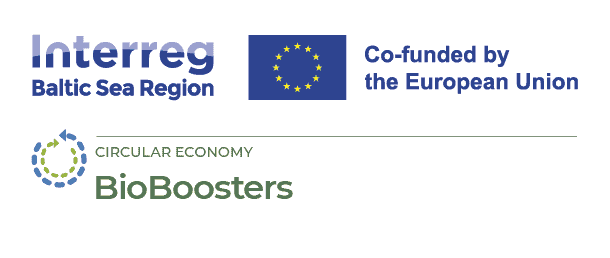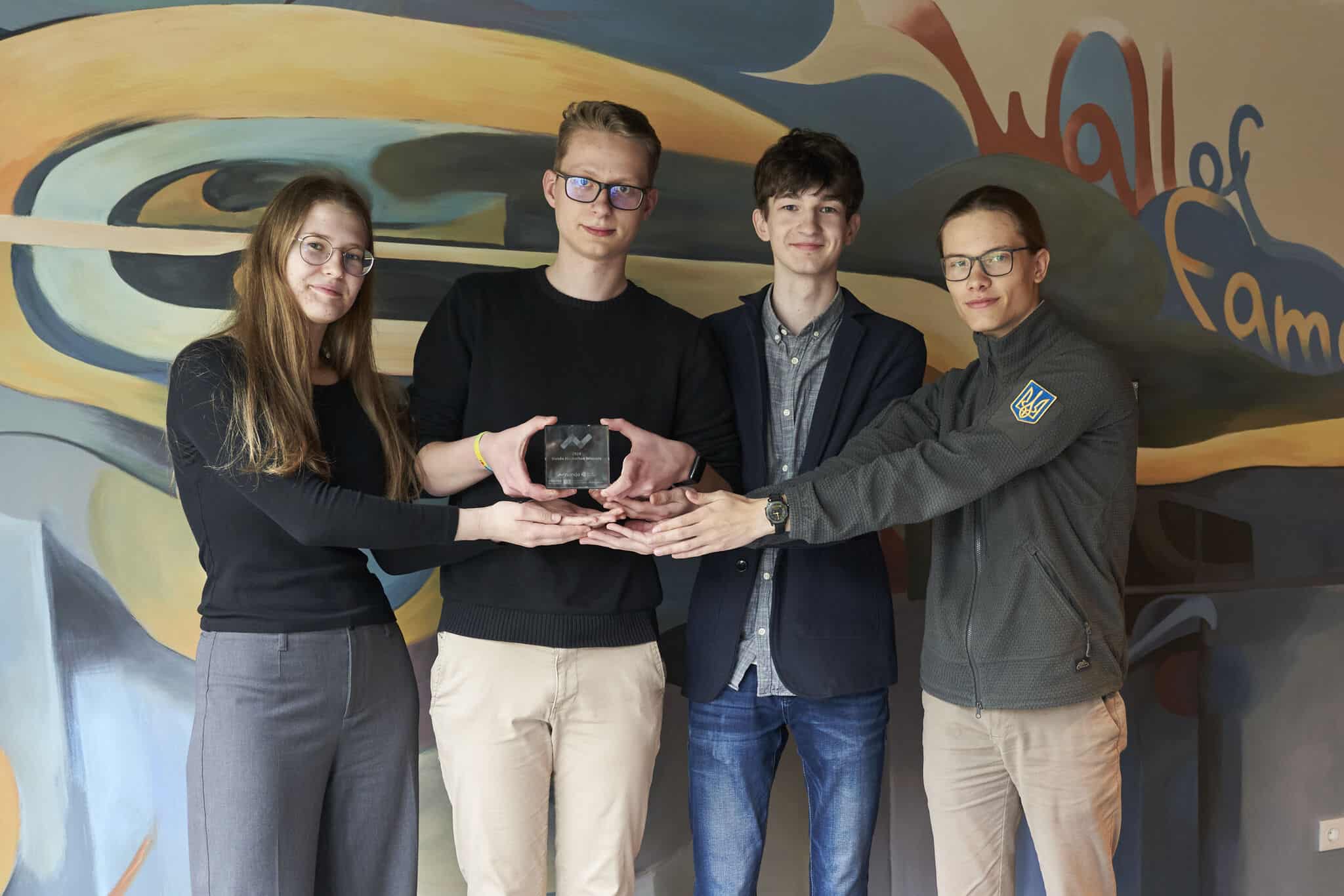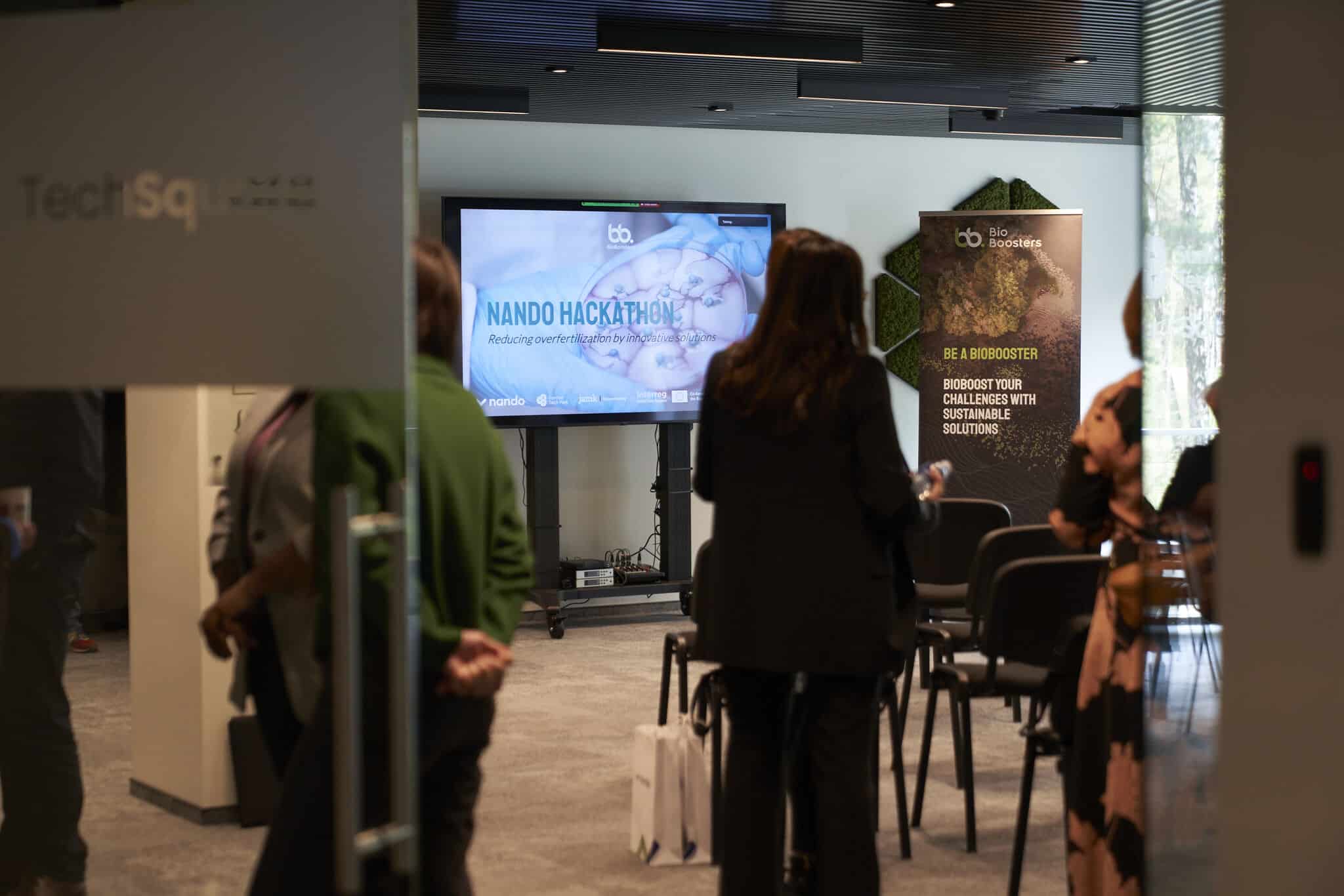
The story about Nando Hackathon
11 June 2024
A significant step towards more sustainable agricultural practices was taken with the Nando Hackathon, held at the Sunrise Technology Park on April 24-25. This event focused on addressing the pressing issue of over-fertilization in European agriculture. The initiative, supported by the Interreg Baltic Sea Region program, is part of the larger “BioBoosters” project, which aims to promote eco-friendly innovations in the bioeconomy sector across several European countries.
Startups project manager Antanas Popiera at Sunrise Tech Park shared his thoughts on the Nando Hackathon and the BioBoosters project.
What makes Bioboosters hackathon unique?
The BioBoosters Hackathon is unique due to its emphasis on eco-friendly innovations within the bioeconomy sector across multiple European countries. This event, part of the larger “BioBoosters” project supported by the Interreg Baltic Sea Region program, connects innovation ecosystems from nine regions, facilitating cross-sectoral knowledge transfer. It is distinguished by its focus on addressing pressing issues and supporting the transition to a circular economy. The hackathon employs a business-driven process, ensuring that the solutions developed are practical and applicable in the industry. Additionally, it fosters diverse participation, bringing together SMEs, start-ups, research groups, and companies from various sectors and countries, creating a rich environment for collaboration and innovation.
What is the impact of the Bioboosters hackathon?
The impact of the BioBoosters Hackathon is multifaceted. It drives sustainable innovation and in Nando Hackathon case it generated solutions to reduce over-fertilization and enhance soil and crop health, thus promoting more sustainable agricultural practices. This, in turn, aids environmental protection by addressing water pollution and soil degradation issues, contributing to biodiversity conservation. Economically, the solutions developed can lead to significant cost savings for farmers and agricultural businesses through optimized fertilizer use and reduced waste. The hackathon also strengthens international collaboration and networking, allowing participants to share knowledge and best practices, and results in practical, implementable solutions. For instance, Nando’s continued collaboration with the winning teams to test and refine their innovations underscores the hackathon’s real-world applicability.
What kind of help you got from the international partnership in organizing a BioBoosters Hackathon?
The international partnership played a crucial role in organizing the BioBoosters Hackathon by providing various forms of valuable assistance. Partners from different regions and sectors contributed their expertise, serving as mentors, enriching the hackathon experience for participants. This partnership also facilitated networking and outreach, connecting the organizers with various stakeholders, including SMEs, start-ups, and research groups, ensuring diverse and high-quality participation. Furthermore, the international partners shared best practices and innovative approaches from their respective regions, enhancing the overall quality and impact of the hackathon.
What lessons would you like to share with other Hackathon organizers?
From organizing the BioBoosters Hackathon, several key lessons can be shared with other hackathon organizers. It is crucial to define clear objectives that align with the broader project or organizational aims. Leveraging partnerships, especially international and cross-sectoral ones, brings in diverse perspectives, resources, and expertise, which are invaluable. Addressing real-world problems with practical implications attracts motivated participants and produces implementable solutions. Providing strong mentorship from experienced professionals helps participants refine their ideas and presentations. Encouraging diverse participation from various backgrounds and regions fosters creativity and innovation. Finally, planning for follow-up is essential; establishing mechanisms for continued collaboration with winning teams and other promising participants ensures that the solutions developed during the hackathon are further refined and implemented, maximizing their impact.
Interactive map showing pilot locations. Use the arrow keys to move the map view and the zoom controls to zoom in or out. Press the Tab key to navigate between markers. Press Enter or click a marker to view pilot project details.








